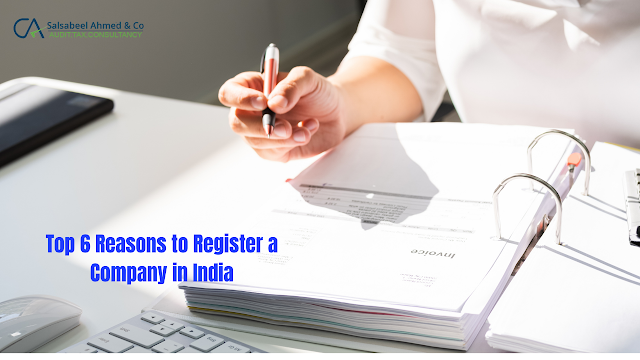Why You Need A Chartered Accountant While Setting Up A Business
The single most important person in your business is your accountant. Chartered accountants are available to help you set up a company for as little fees. Correctly structuring your company will save you money and reduce the risk of penalties.
Chartered accountants know the ins and outs of all the taxes, levies, and social security obligations associated with running a business – they can help you minimise the risks and maximise the potential tax concessions.
Why you need a chartered accountant while setting up a business:
You need to choose the right accountants to help you set up your business and make sure it's legally compliant and financially sound. Inside Information was asked why outside accountants are often asked to visit or audit a company as part of a due diligence process.
The answer is that to be accredited (or licensed) as a chartered accountant, accountants must pass the professional exams and comply with the ethics code. However, they are often not company experts. An outside accountant is someone who has a full understanding of the various tax laws, accounting standards and management techniques involved in running a successful business. A business lawyer has expertise in commercial law but not necessarily accounting or tax laws.
An outside accountant will be able to help you protect your company from tax and other financial risks.
Aside from the business risks you may be taking, there is also a risk of legal liability if things go wrong. Wherever possible, it's best to put in place contracts and forms that provide clear written obligations for all participants in your company dealings. Your accounting procedures should also be properly documented and provide for independent verification of your company's financial statements throughout all its various stages.
You need to understand the structure of your business.
If you have a large amount of capital involved in your business it's best to set up with a separate company for the shares. In your initial stages, keep the profits in the company where you will also be liable for any debts.
You also need to make sure that you can borrow from sources outside your personal capacity: if you're in financial difficulties, no lender will lend you money if they know that your personal assets may be subject to repossession. So if you set up your company as a sole trader, your personal assets will be at risk and the company will be personally liable for the debts.
You need to find ways to reduce your tax obligations, which can be significant in a small business. For instance, where you introduce stock and share options into your business they may cost you as much as 30 percent of taxable income – which is double what non-trading companies pay. Of course, the costs here are not included in the company's tax calculation.
You should be aware that if you have a high annual turnover, your company may have to pay tax even on profits earned. So make sure you employ the right people to watch over your accounting and taxation to avoid such penalties.
While your business is growing, the tax agency will be monitoring your revenue and expenditure very carefully. So it's in your best interest to stay ahead of them by having all of your accounting documentation ready for inspection at any time.



Comments
Post a Comment